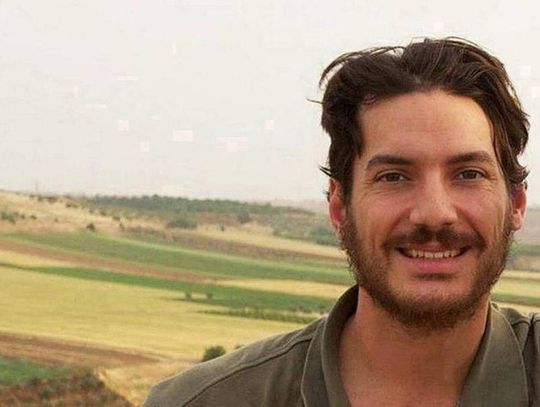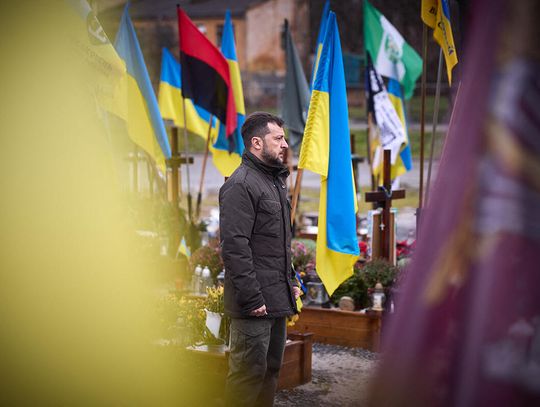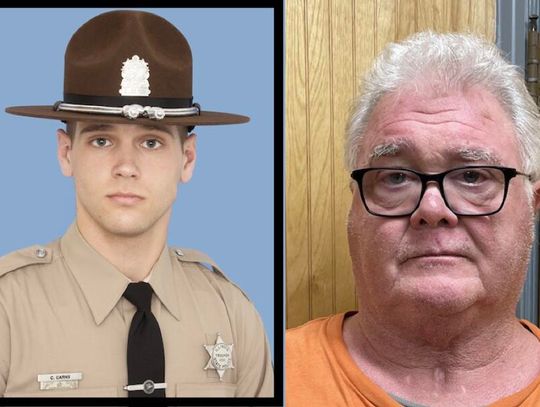Oglądając ostatnio wiadomości na temat koronawirusa i/lub Donalda Trumpa, nie mogę oprzeć się wrażeniu, że wszyscy jesteśmy zafascynowani myślą, że świat może się skończyć.
To oczywiście nic nowego. Jeśli włączysz telewizor, możesz nagrywać nieograniczoną liczbę seriali o końcu świata. Zaczynasz od „Walking Dead” (2010), kontunuujesz z „The Last Ship”, „The Strain”, „Under the Dome”, „Extant”, „The Rain”, „Daybreak”, „Z Nation”, „Black Summer”, „Falling Skies” i wieloma wieloma innymi. Przyznam się, że przygotowując ten felieton dla „Dziennika Związkowego” wygooglowałem „najlepsze seriale telewizyjne o apokalipsie” i znalazłem stronę internetową, która wymienia i opisuje sto najlepszych seriali. Jestem pewien, że jest następna strona, która wymienia sto najgorszych.
I wydaje się, że nie ma końca tym serialom o końcu świata. Na prawdę nie mogę się doczekać produkcji HBO „The Plot Against America” o członkach ultra prawicowego amerykańskiego ruchu Alt-Right, na czele których stoi zwolennik nazistów – Charles Lindbergh, którzy próbują przejąć kraj wolny i ojczyznę dzielnych ludzi na początku lat 40. dwudziestego wieku.
Oglądasz te seriale i widzisz koniec świata wywołany przez zombie, wampiry, meteory, inwazje kosmitów i choroby, takie jak koronawirus.
I może przez Boga.
Właśnie zacząłem oglądać serial HBO „Leftovers” – historię świata po ewangelicznym „porwaniu kościoła”, czyli powrocie Jezusa na ziemię, który zabiera tych naprawdę świętych do nieba, pozostawiając ciebie i mnie za sobą.
To nie jest ładne. Bóg nie bierze jeńców.
Oczywiście wszystko to sprawia, że zastanawiam się skąd bierze się ta fascynacja końcem świata. Czy to dlatego, że ostatnio świat czuje się naprawdę stary, a kiedy czujesz się naprawdę stary, to zaczynasz myśleć o tym, jak to wszystko się skończy?
A może dlatego, że świat się skończył – wirtualnie. Spędzamy tyle czasu w naszych domach oglądając świat w telewizji, że nie zdajemy sobie sprawy, że wciąż istnieje prawdziwy świat, ten za moim oknem, świat wolny od zombie, psów i samochodów – i ludzie.
Hmmmmm….. Właśnie dotarło do mnie, że od pół godziny lub dłużej nikt nie przeszedł koło mojego domu. Żadnych przechodniów, biegaczy, żadnych kierowców w samochodach lub ciężarówkach. Nikt.
Czy świat się skończył, gdy pisałem ten felieton?
Lepiej włączę telewizor i zobaczę czy coś pozostało.
Pre-Post-Apocalyptic Blues
Watching the news recently about the coronavirus and/or Donald Trump, I can’t help feeling that we are all fascinated with the idea that the world may come to an end.
This is nothing new, of course. If you turn on your TV, you can binge any number of TV series about the end of the world. It started with Walking Dead (2010) and continues through TV shows like The Last Ship, The Strain, Under the Dome, Extant, The Rain, Daybreak, Z Nation, Black Summer, Falling Skies, and so many, many more. In fact, in preparing to write this column for the Polish Daily News, I googled “Best Apocalyptic TV series” and found a site that lists and describes the 100 best apocalyptic series. I’m sure there’s another site that lists the 100 worst apocalyptic series.
And there doesn’t seem to be an end to these shows about the end of the world. In fact, I’m really looking forward to HBO’s The Plot Against America, about American Alt-Right guys led by pro-Nazi Charles Lindbergh trying to take over the land of the free and the home of the brave in the early 1940s.
Watching these series, you see the world brought to an end by zombies, vampires, meteors, alien invasions, and diseases like the coronavirus.
And God maybe.
I just started watching Leftovers -- the HBO series about what the world is like after what appears to be the Rapture happens and Jesus comes back to earth to take the really holy to heaven while leaving you and me behind.
It's not pretty. God doesn't take prisoners.
Of course, all of this gets me wondering why this fascination with the end of things? Is it because the world suddenly feels really old, and when you get to feel really old you start thinking about how things will end?
Or maybe it's because the world has ended -- virtually. We spend so much time inside our homes watching the World Come to An End on TV that we don't realize that there's a real world still out there, the one outside my window, a world free of zombies and dogs and cars -- and people.
Hmmm. It suddenly occurred to me that nobody has passed my house in the last 30 minutes or so. No walkers or runners, no drivers driving cars or trucks. Nobody.
Has the world ended while I was writing this column?
I better turn on the TV and see if there's anything left.
John Guzlowski
amerykański pisarz i poeta polskiego pochodzenia. Publikował w wielu pismach literackich, zarówno w USA, jak i za granicą, m.in. w „Writer’s Almanac”, „Akcent”, „Ontario Review” i „North American Review”. Jego wiersze i eseje opisujące przeżycia jego rodziców – robotników przymusowych w nazistowskich Niemczech oraz uchodźców wojennych, którzy emigrowali do Chicago – ukazały się we wspomnieniowym tomie pt. „Echoes of Tattered Tongues”. W 2017 roku książka ta zdobyła nagrodę poetycką im. Benjamina Franklina oraz nagrodę literacką Erica Hoffera, za najbardziej prowokującą do myślenia książkę roku. Jest również autorem dwóch powieści kryminalnych o detektywie Hanku Purcellu oraz powieści wojennej pt. „Road of Bones”. John Guzlowski jest emerytowanym profesorem Eastern Illinois University.
—
John Guzlowski's writing has been featured in Garrison Keillor’s Writer’s Almanac, Akcent, Ontario Review, North American Review, and other journals here and abroad. His poems and personal essays about his Polish parents’ experiences as slave laborers in Nazi Germany and refugees in Chicago appear in his memoir Echoes of Tattered Tongues. Echoes received the 2017 Benjamin Franklin Poetry Award and the Eric Hoffer Foundation's Montaigne Award for most thought-provoking book of the year. He is also the author of two Hank Purcell mysteries and the war novel Road of Bones. Guzlowski is a Professor Emeritus at Eastern Illinois University.










